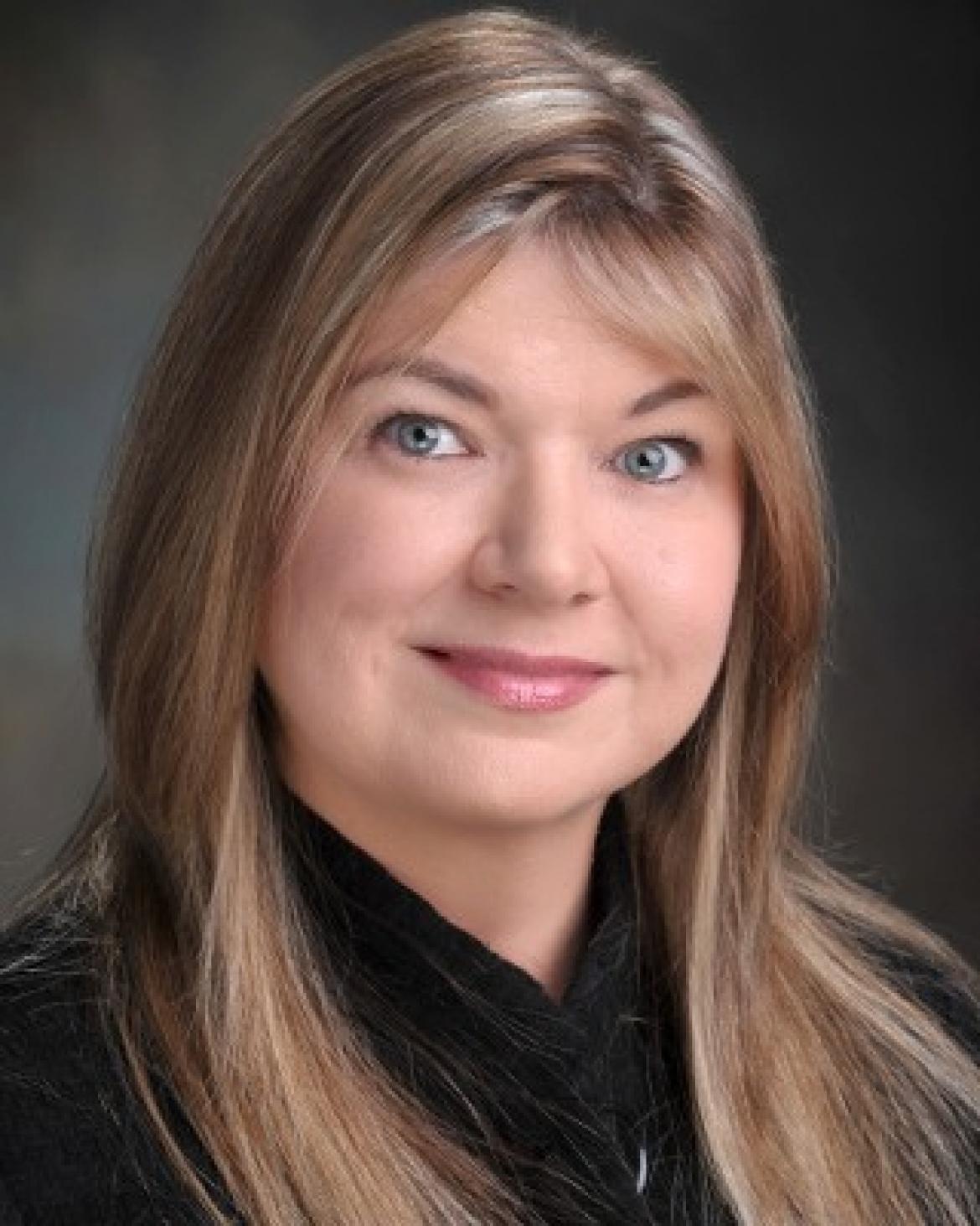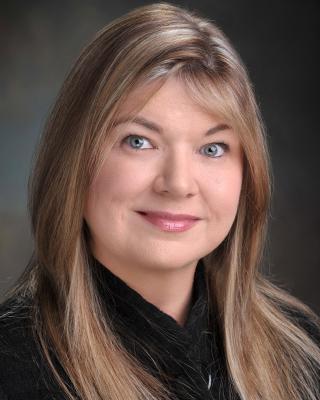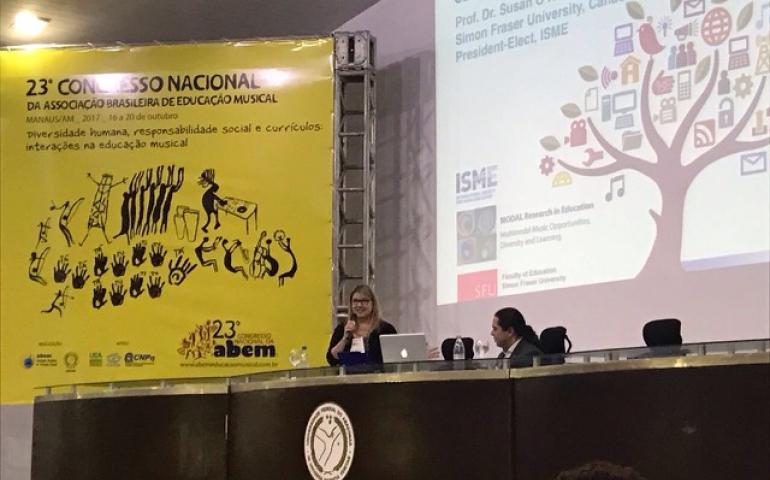Opening Address by Dr. Susan O’Neill, President-Elect, ISME
23rd National Congress for the Brazilian Association of Music Education (ABEM)
October 16–20, 2017
Manaus, Brazil
It is an amazing experience to come to Manaus. As I was growing up in a small town in Canada, going anywhere near the Amazon rainforest sounded so exciting and exotic. I never dreamed I would visit such an amazing place. And I certainly didn’t imagine that it would be music education that would bring me here to join so many other people who are passionate about music and music education in Brazil and around the world.
I’m certain that over the next four days we will find our experiences here to be welcoming, inspiring and rewarding.
In thinking about your conference theme, Human diversity, social responsibility and curricula: interactions in music education, the ideas this theme evokes take on a sense of urgency when we consider the context of today’s world – a world marked by conflict, prejudice, inequality, fear and uncertainty for many people – a world marked by dissolving boundaries and rapid change.
The former Secretary-General of the United Nations, Kofi Annan, once said: “Tolerance, inter-cultural dialogue and respect for diversity are more essential than ever in a world where people are becoming more and more closely interconnected. People of different religions and cultures live side by side in almost every part of the world, and most of us have overlapping identities which unite us with very different groups. We can love what we are, without hating what - and who - we are not. We can thrive in our own tradition, even as we learn from others, and come to respect their teachings.”
Kofi Annan reminds us of one of the central principles of cultural diversity in education - to foster acceptance, intercultural dialogue and respect for diversity. At the same time, Annan highlights the tensions that exist when educators try to fulfil two contradictory social agendas: acknowledging the unique identity of individuals or groups while at the same time occupying a shared space where all people, regardless of their cultural background, feel a sense of value and belonging. Although these social agendas are both rooted in notions of equity and respect; they often come into conflict in social and educational situations. How do we learn to ‘love what we are, without hating what—and who—we are not’? How do we ‘thrive in our own traditions’ while also learning about the cultural traditions of others in a way that will foster mutual respect?
These are key questions facing today’s music educators, who acknowledge the importance of cultural diversity in music education and seek ways to foster it in and through their music performance practices, here in Brazil and around the world.
This week, as you share knowledge, understanding and music making, I hope you will find this to be a momentary space for interaction that encourages the exploration of difference and hope; a space that facilitates the transformation of perspectives about how we can infuse our music curriculum and music-making practices with the principles and values of social responsibility and social justice.
In my role as President-Elect of ISME, I’d like to remind you briefly about the values and activities of the International Society for Music Education. ISME believes that lived experiences of music, in all their many aspects, are a vital part of the life of all people. ISME has members in over 90 countries around the world and is affiliated with UNESCO and the International Music Council. ISME’s mission is to build and maintain a worldwide community of music educators characterised by mutual respect and support, to foster intercultural understanding and cooperation among the world’s music educators, and to promote music education for people of all ages in all relevant situations throughout the world.
If you are not already a member of ISME, I invite you to visit our website and explore the many benefits that an ISME membership offers including: the Latin-American Regional Conferences and other regional conferences around the world, the Commissions, Special Interest Groups and Forums, development projects and funding opportunities for research, projects and partnership development. Membership also includes a subscription to the International Journal of Music Education. But perhaps most importantly, ISME provides members with an opportunity to continue to spread your work throughout the year with people from around the world and at our biennial world conferences.
In July, I met with the ISME Board at the site of the next world conference which will take place next year in July 2018 in Baku, Azerbaijan. During our visit to Baku, we found it to be a remarkable city, that is rich in music traditions, music performance and music education opportunities. I didn’t know what to expect before I arrived in Baku, but I can assure you that it was a wonderful experience – it is a modern, welcoming and exciting cultural destination that is well worth visiting. We look forward to delivering an engaging ISME conference in Baku in 2018 and hope to see you there.
But today, we are celebrating the opening of the 23rd National Congress of ABEM. I thank the conference organisers for their dedicated and outstanding preparations that will give us all a rich and rewarding conference. And I congratulate you all on the important work you are doing and I’m certain that during this week you will have many remarkable opportunities to share, reflect on and energise your work as you envision together new possibilities for the future of music and music education.















